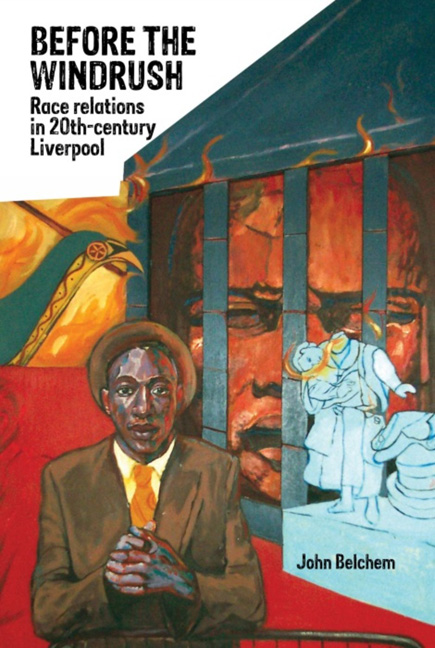Book contents
- Frontmatter
- Dedication
- Contents
- List of illustrations
- List of tables
- List of abbreviations
- Acknowledgements
- Preface
- Introduction: ‘The most disturbing case of racial disadvantage in the United Kingdom’
- Chapter One Edwardian cosmopolitanism
- Chapter Two Riot, miscegenation and inter-war depression
- Chapter Three Wartime hospitality and the colour bar
- Chapter Four Repatriation, reconstruction and post-war race relations
- Chapter Five Race relations in the 1950s
- Chapter Six 1960s: race and youth
- Chapter Seven The failure of community relations
- Chapter Eight ‘It took a riot’
- Sources consulted
- Index
Chapter Eight - ‘It took a riot’
- Frontmatter
- Dedication
- Contents
- List of illustrations
- List of tables
- List of abbreviations
- Acknowledgements
- Preface
- Introduction: ‘The most disturbing case of racial disadvantage in the United Kingdom’
- Chapter One Edwardian cosmopolitanism
- Chapter Two Riot, miscegenation and inter-war depression
- Chapter Three Wartime hospitality and the colour bar
- Chapter Four Repatriation, reconstruction and post-war race relations
- Chapter Five Race relations in the 1950s
- Chapter Six 1960s: race and youth
- Chapter Seven The failure of community relations
- Chapter Eight ‘It took a riot’
- Sources consulted
- Index
Summary
The violent and intense disturbances designated as the ‘Toxteth’ riots were triggered by harassment in the deprived Granby area of Liverpool 8, where, as Margaret Simey, chair of the Merseyside Police Committee rued, ‘policing by consent has become policing by confrontation’. Powerless to restrain the ‘fortress mentality’ and ill-concealed racism of Ken Oxford, the Chief Constable, the exasperated but redoubtable Simey (impervious to media and other criticism) all but welcomed the disturbances, noting that given the circumstances in Granby, people ‘ought to riot’. The first wave of riots, 3–6 July, developed out of a fracas when police in an unmarked car, having stopped a young black motor cyclist, brought in a further eight vehicles as back up as a crowd began to gather. A scuffle ensued during which the original youngster ran free but 20-year-old Leroy Cooper was arrested for assault. Cooper was well known among young local blacks as coming from a family which had been the subject of excessive police attention: his father Lester, who had come to Britain from Jamaica 18 years previously, had no criminal record and was currently suing the Chief Constable in a civil action for damages alleging harassment of himself and his son Paul, Leroy's younger brother. The 18-year-old had been arrested 14 times since May 1979, had been required to attend over a dozen identity parades, but had not been convicted – indeed, he had been acquitted of a charge in the Crown Court only the day before Leroy's arrest. Intense rioting followed for the next three days, during which the situation became ‘out of control’, prompting the police to use CS gas for the first time in mainland Britain (fired directly into the crowd contrary to the manufacturer's explicit instructions, some of the 74 high-velocity projectiles caused considerable injuries). As a serving Probation Officer subsequently recorded, a relatively minor incident had provided the motivation and opportunity for members of a marginalised community to assert their right to equal concern and respect by means of violence, exposing the weak position of the police, severely outnumbered, as otherwise law-abiding citizens condoned – or exploited – the ‘rioting’.
- Type
- Chapter
- Information
- Before the WindrushRace Relations in 20th-Century Liverpool, pp. 251 - 278Publisher: Liverpool University PressPrint publication year: 2014



